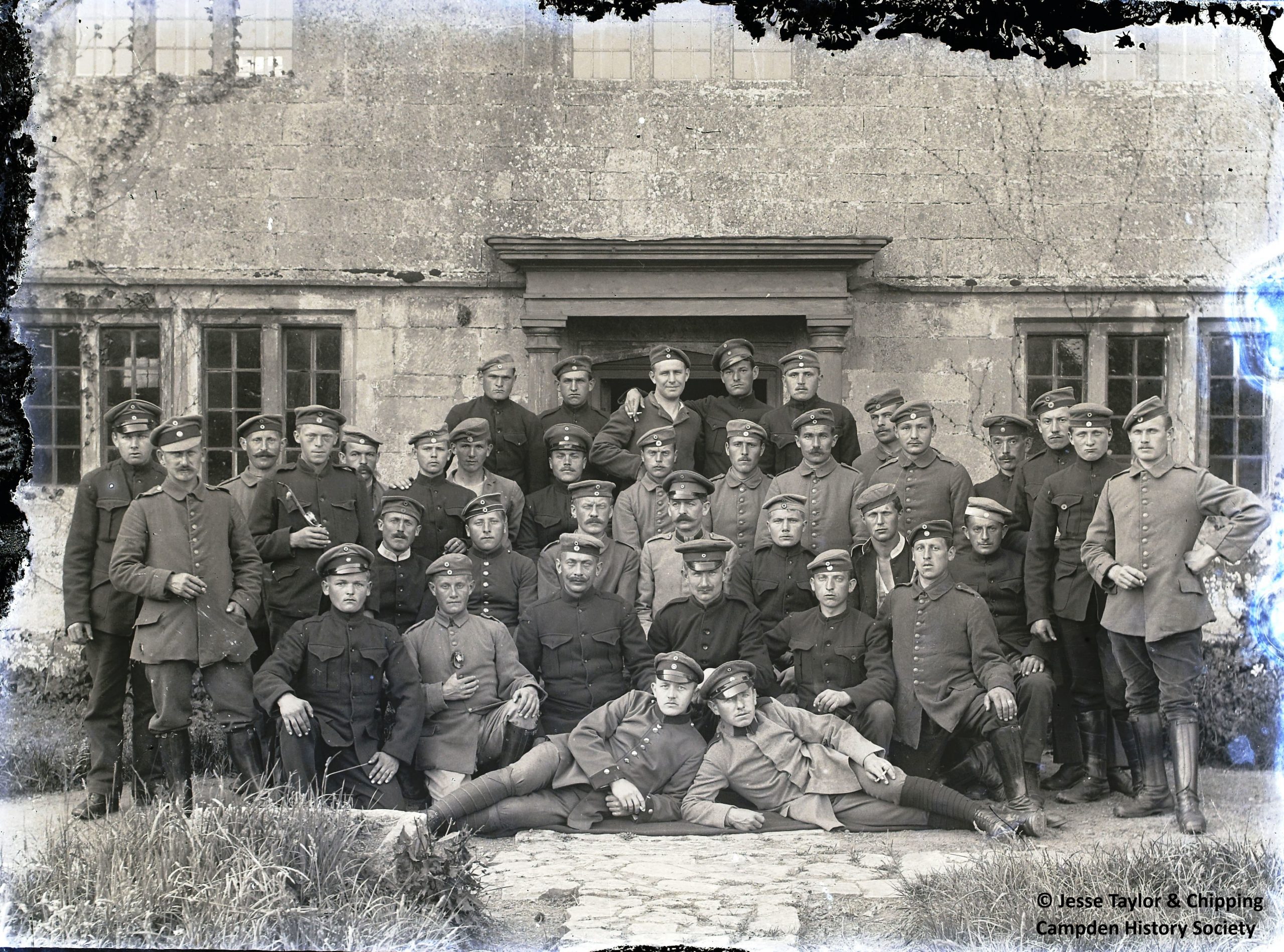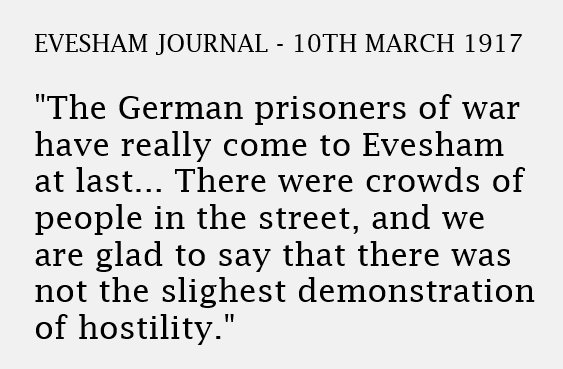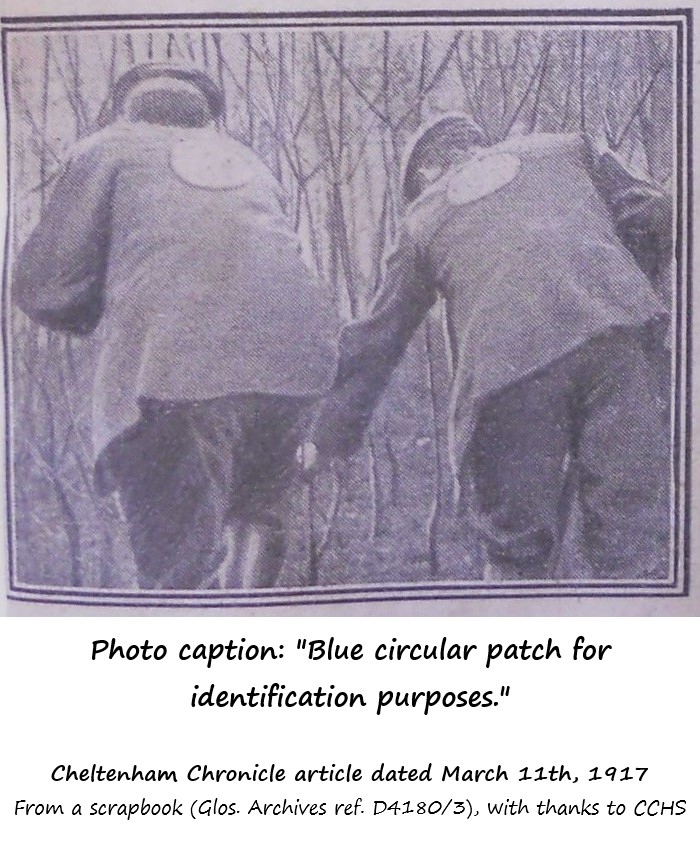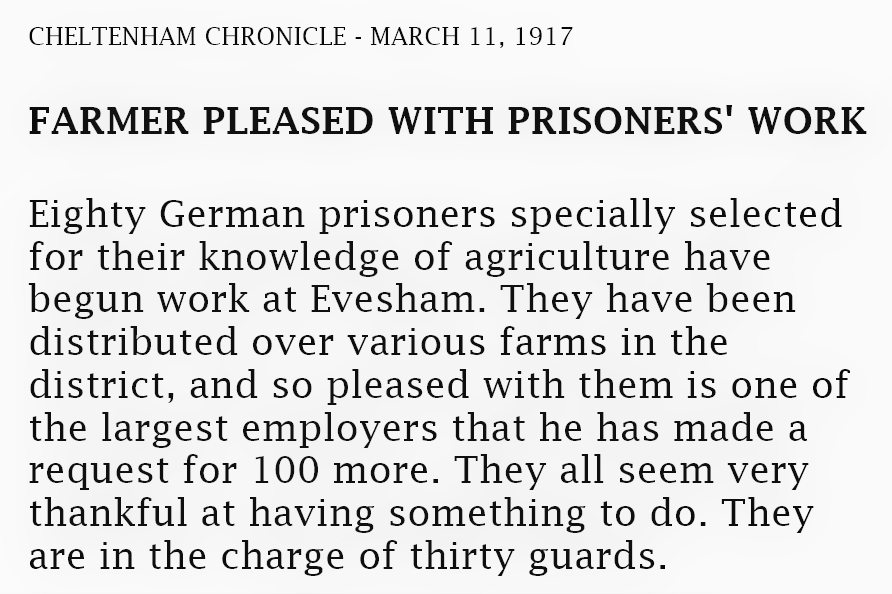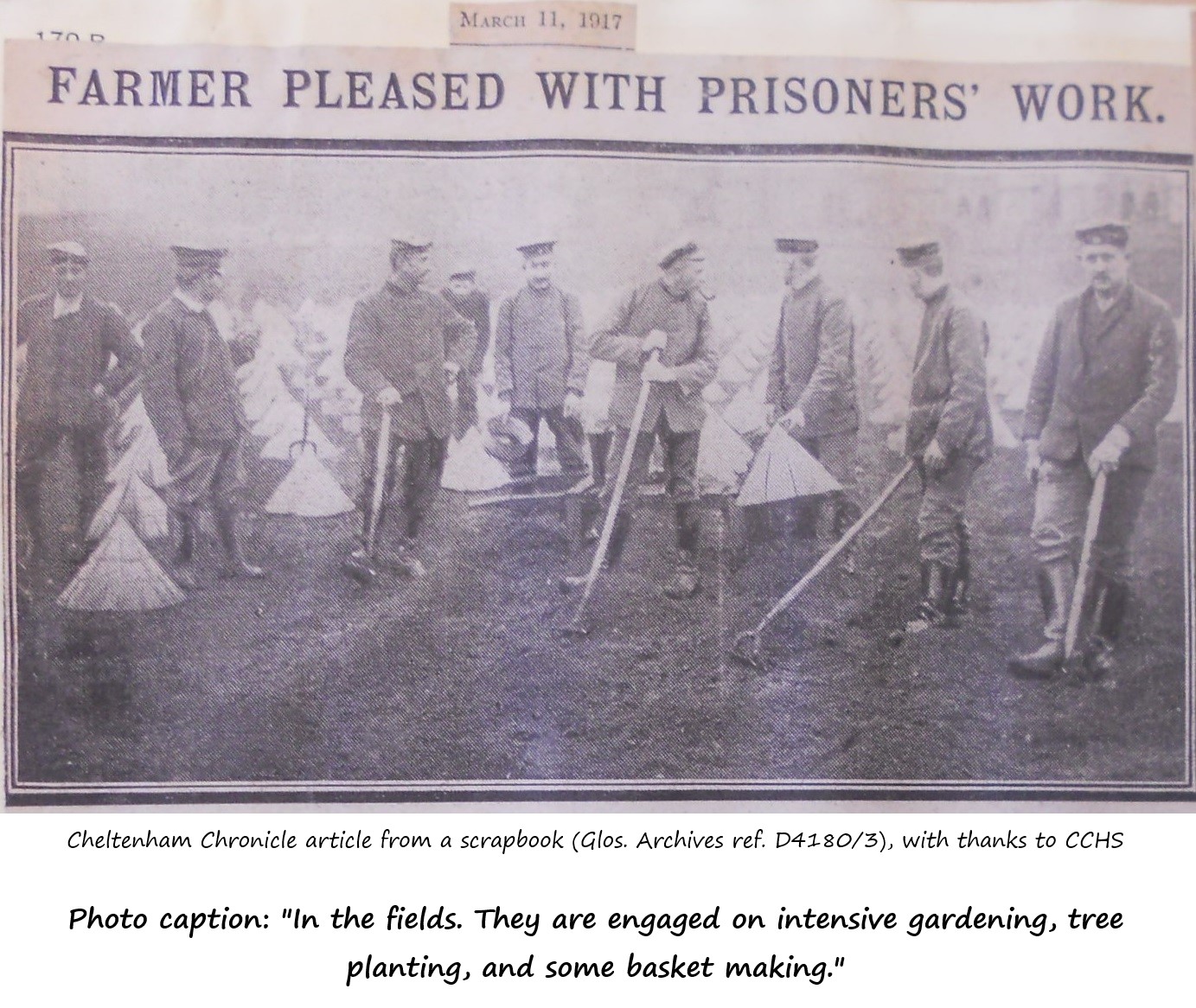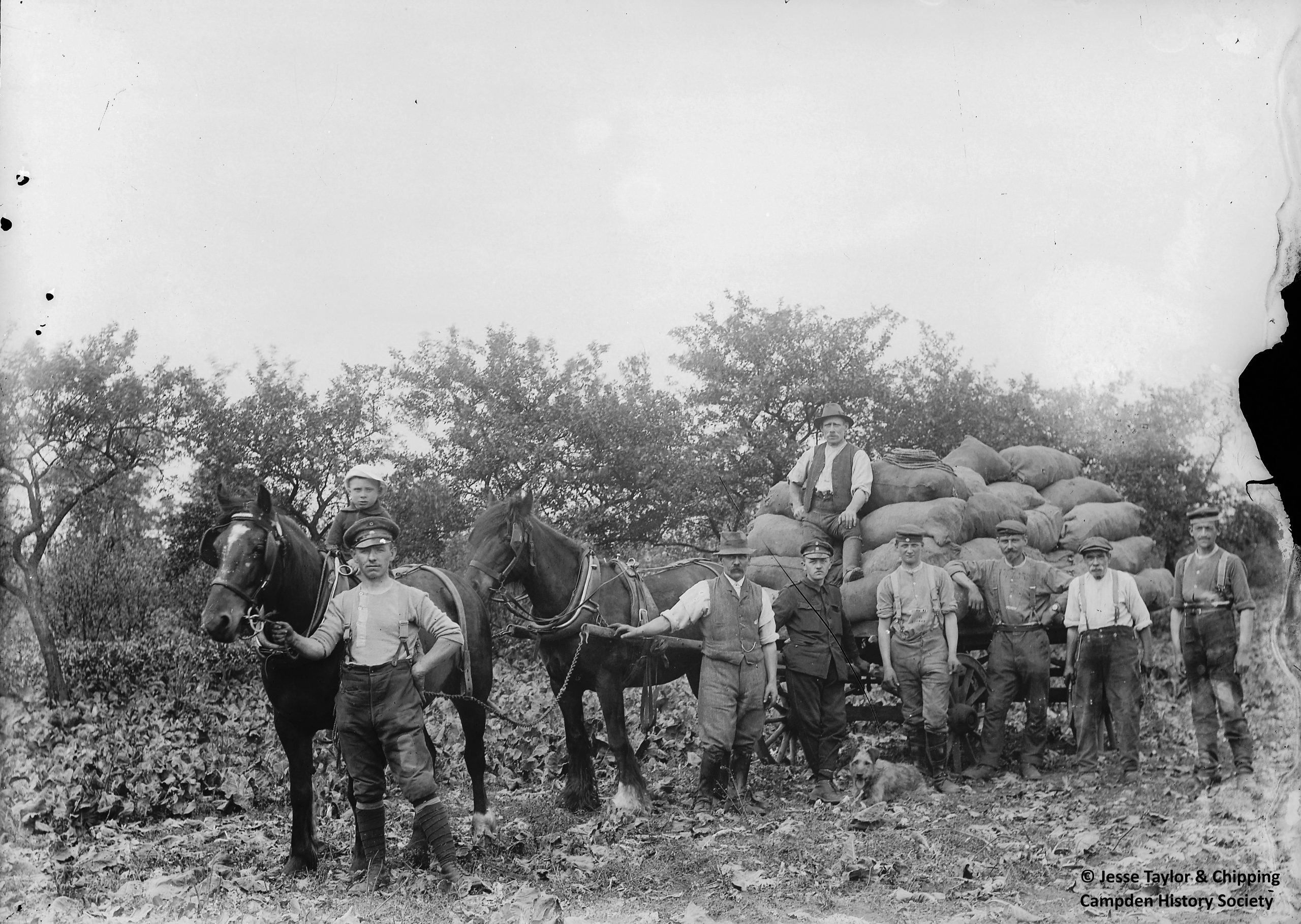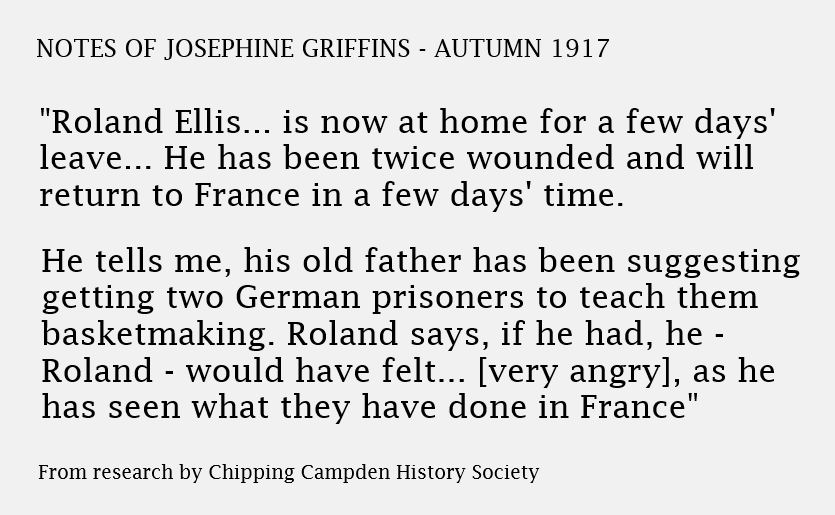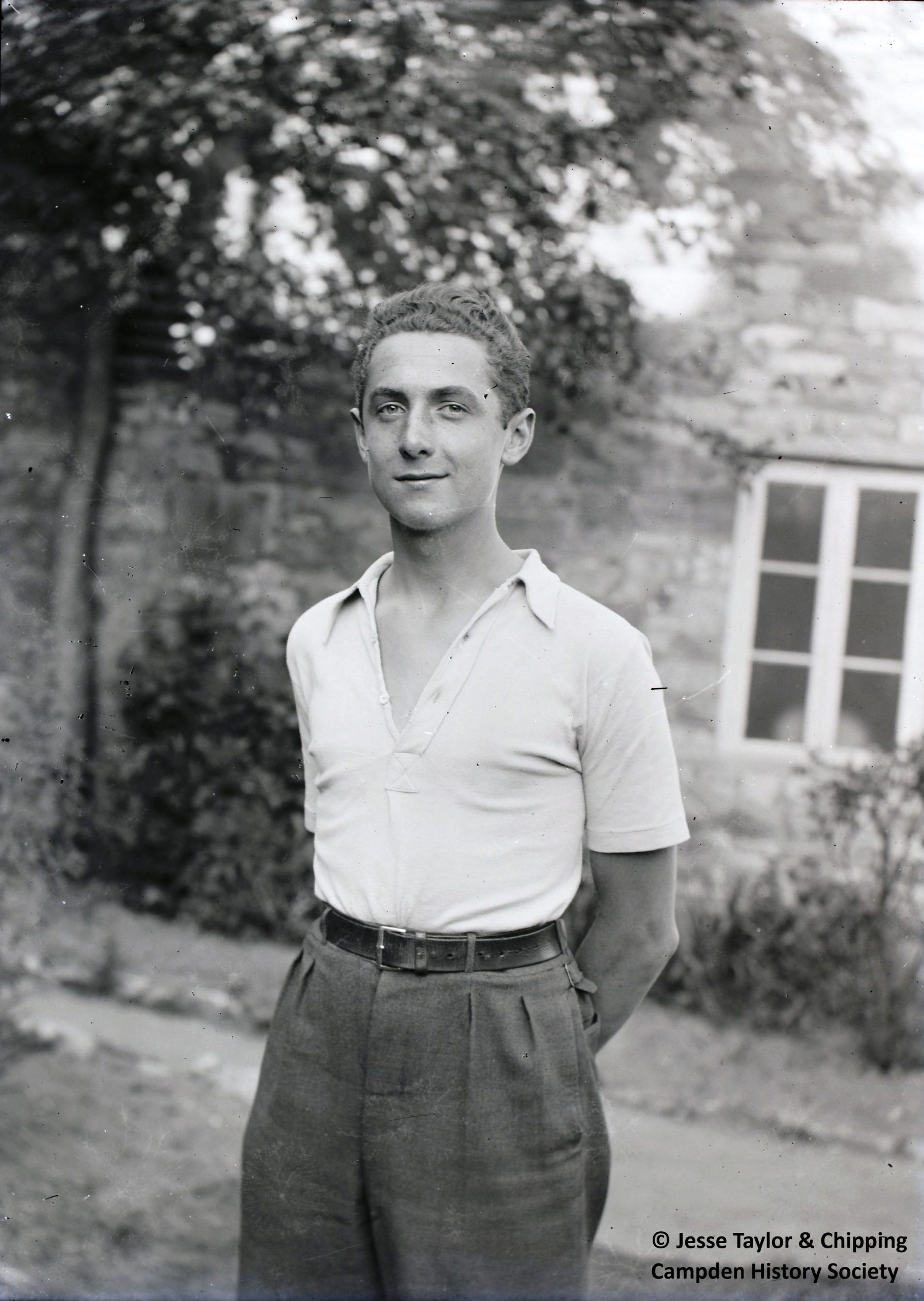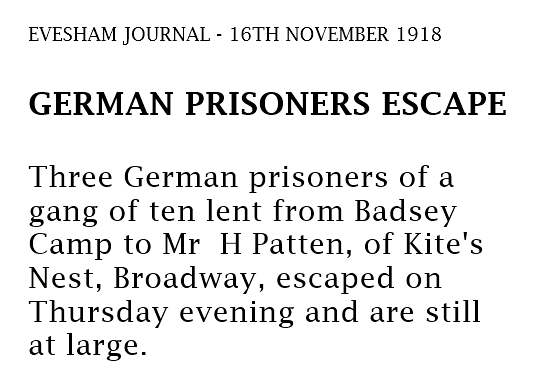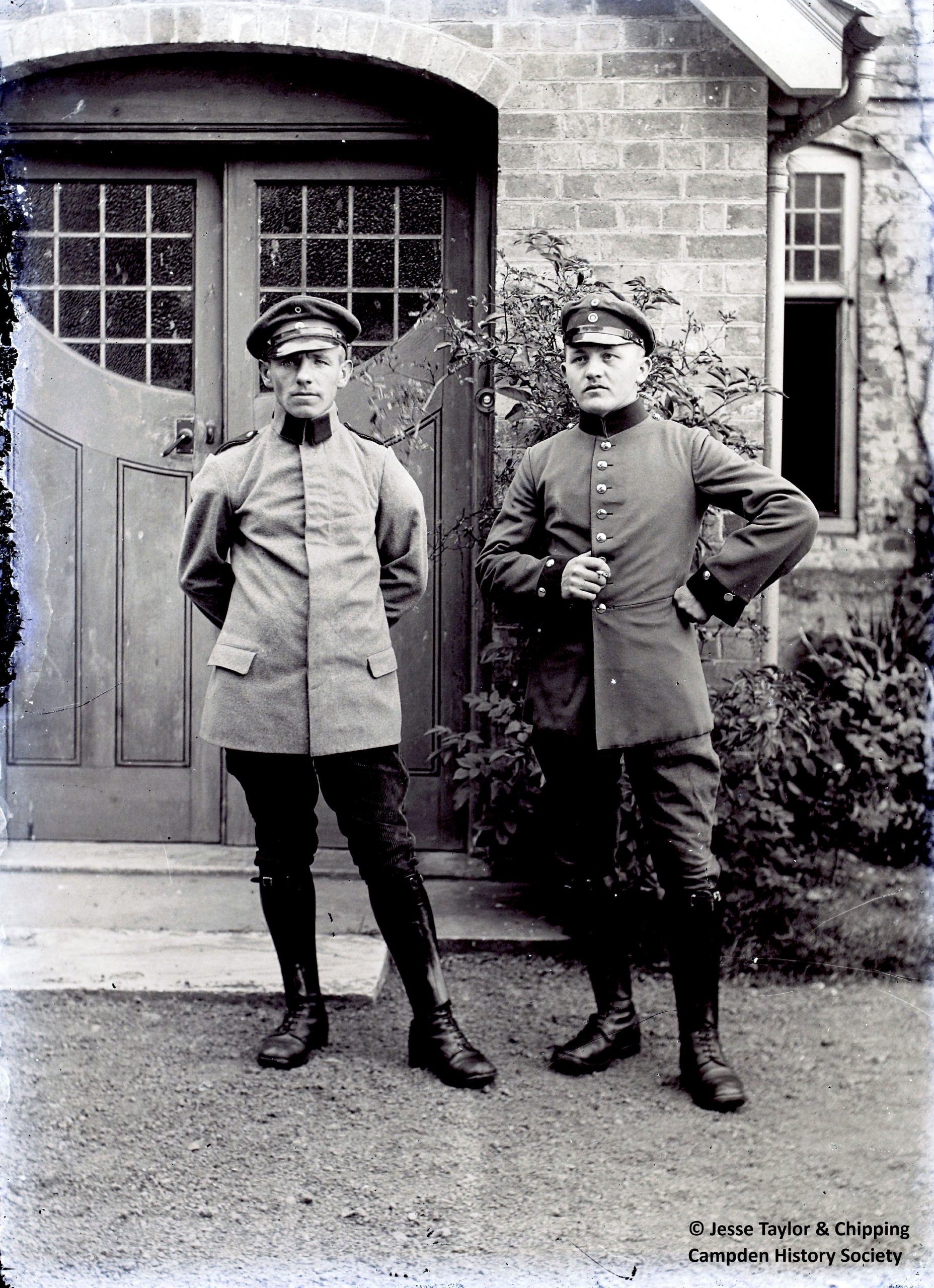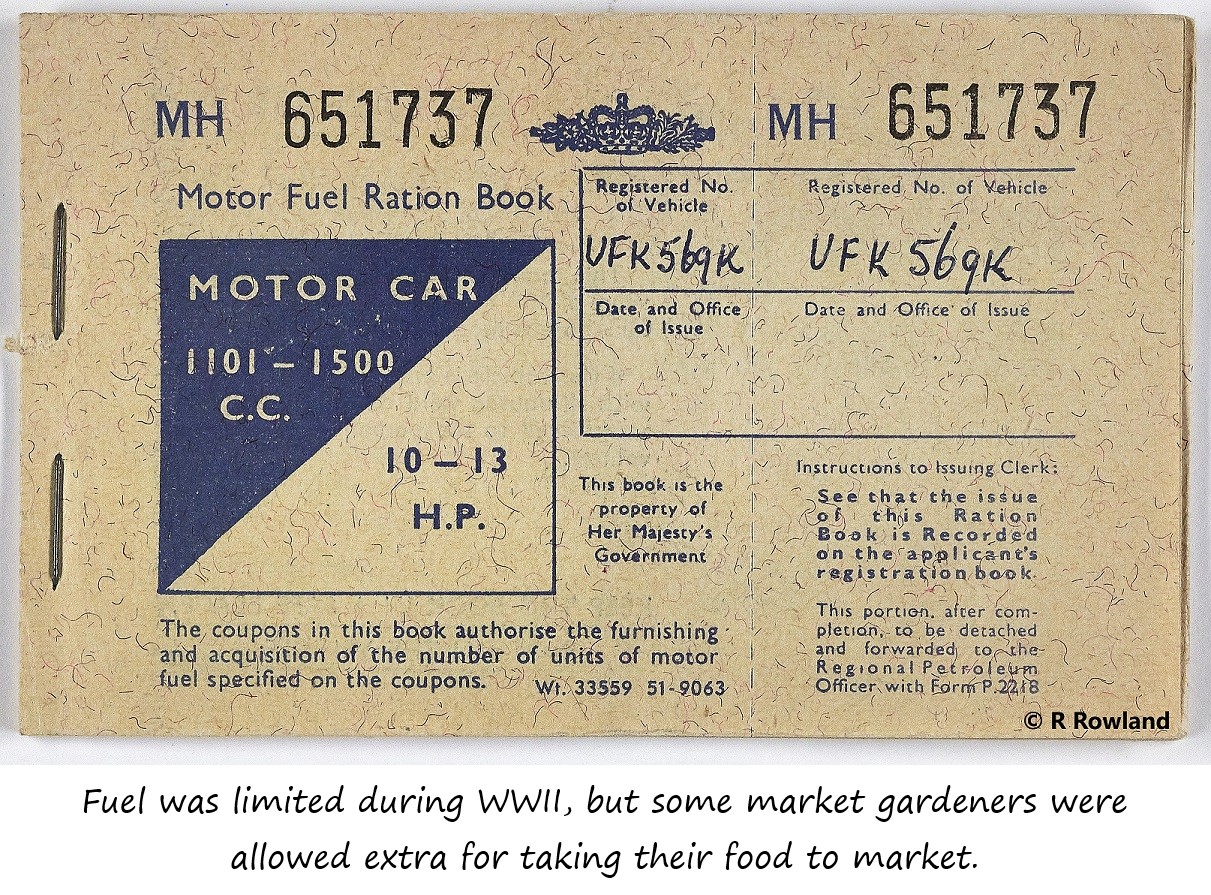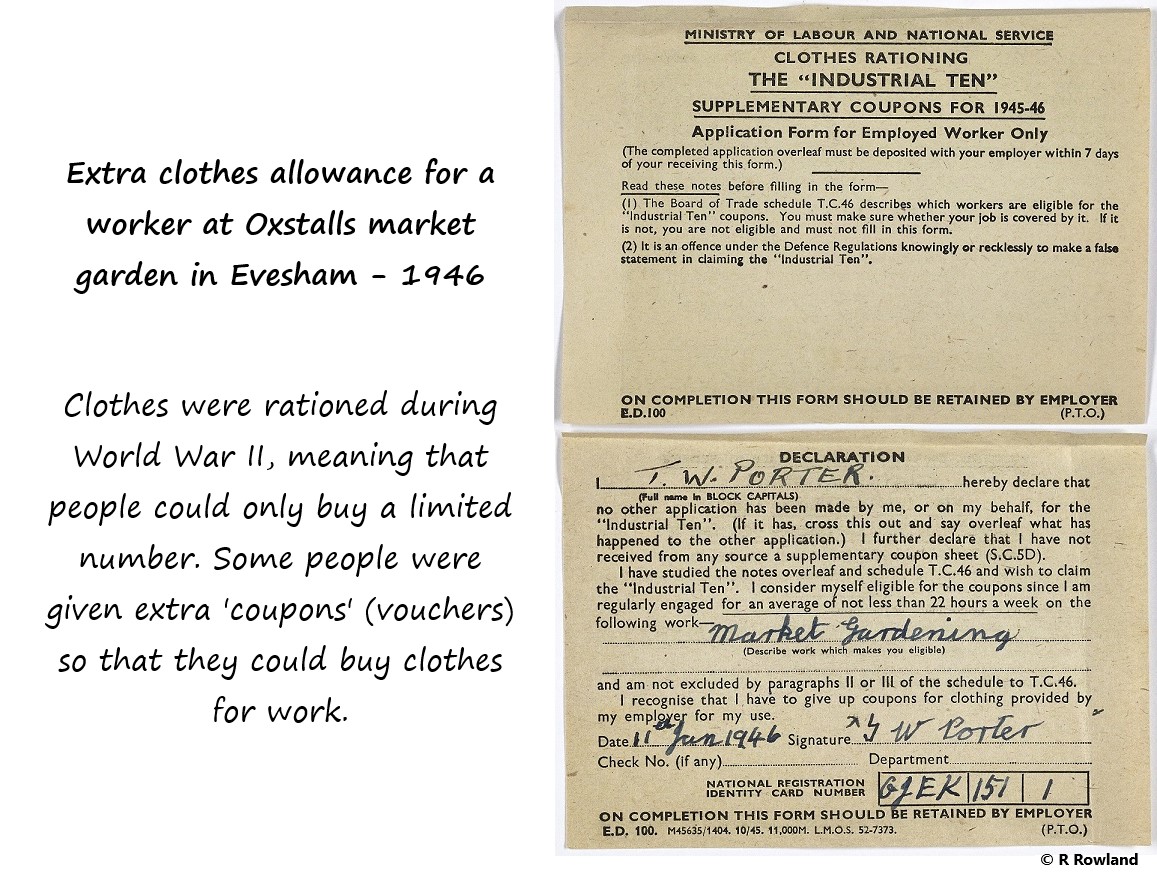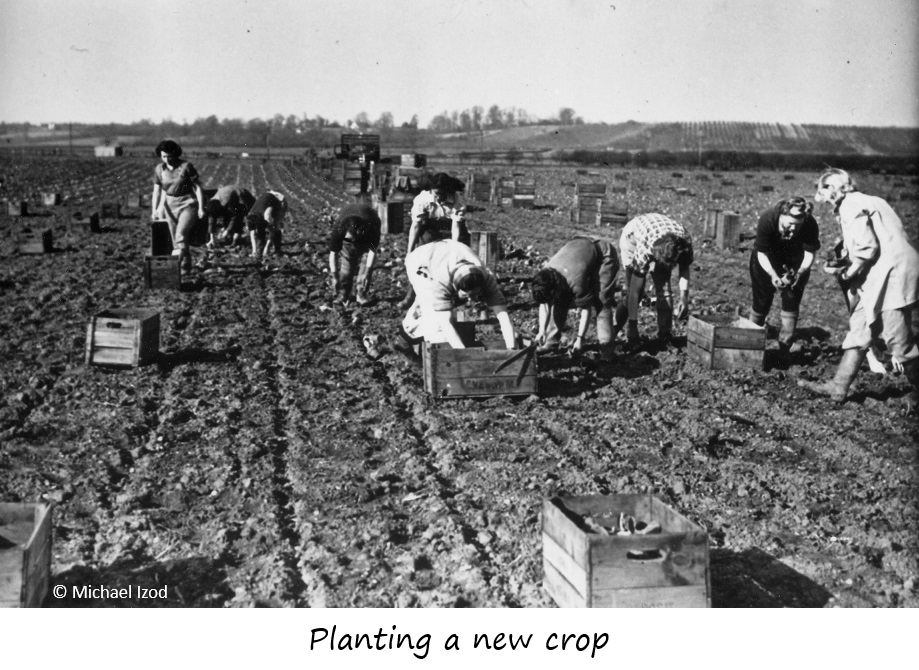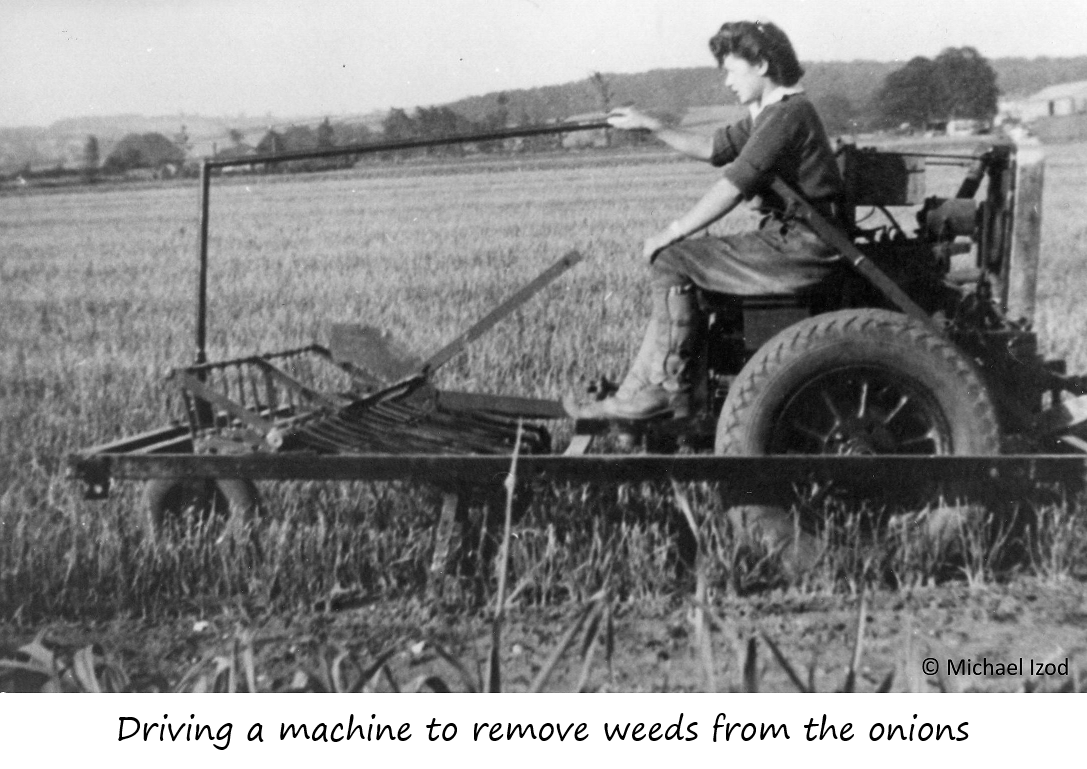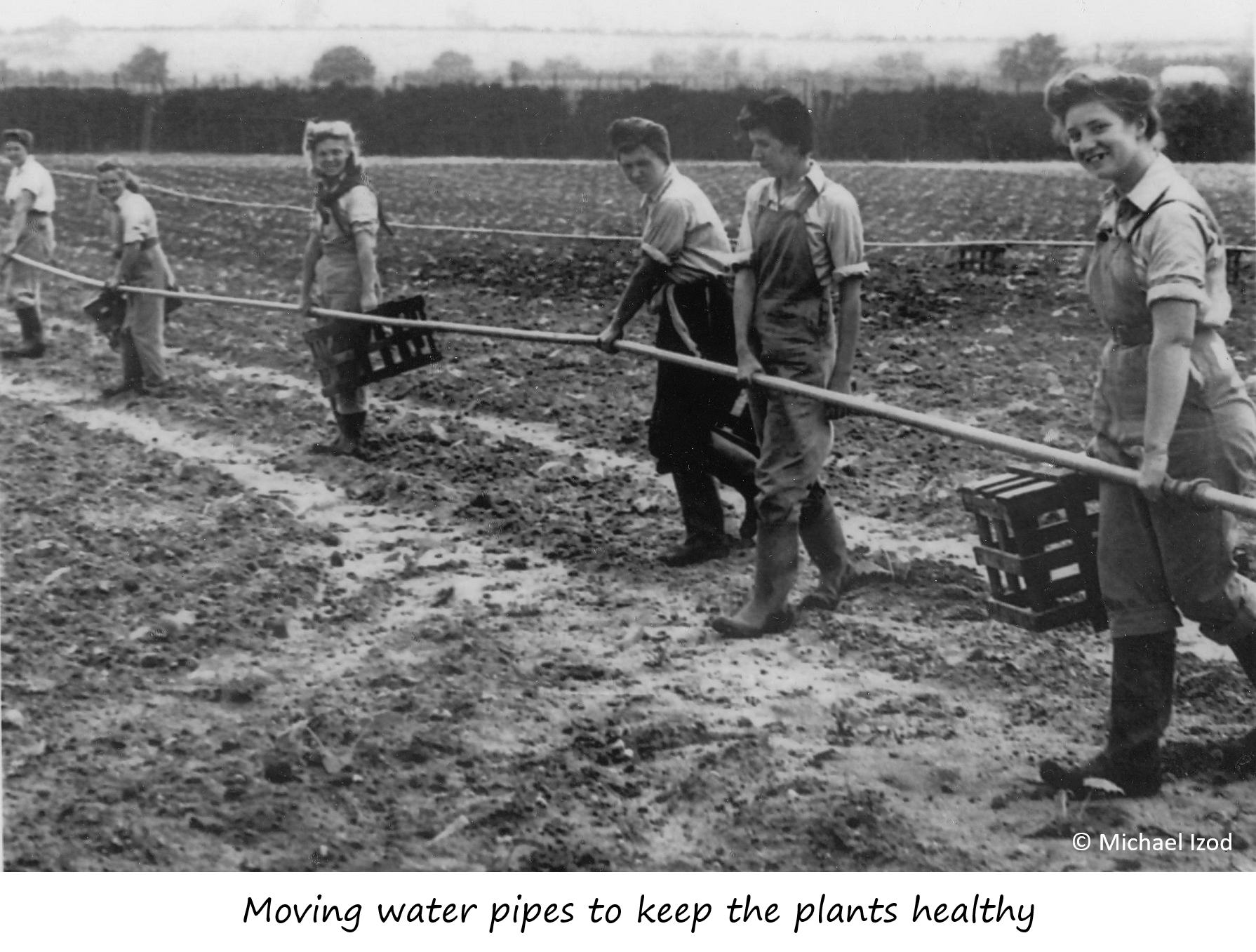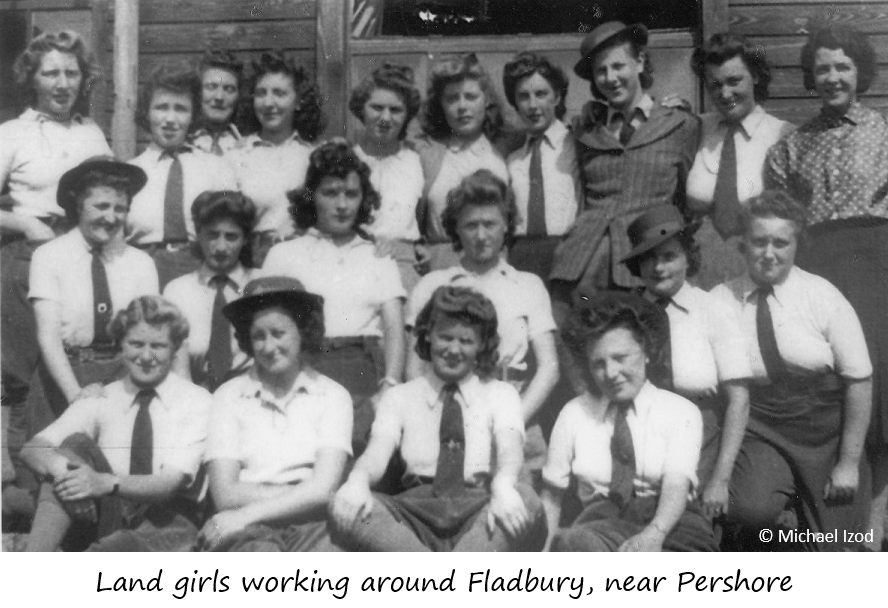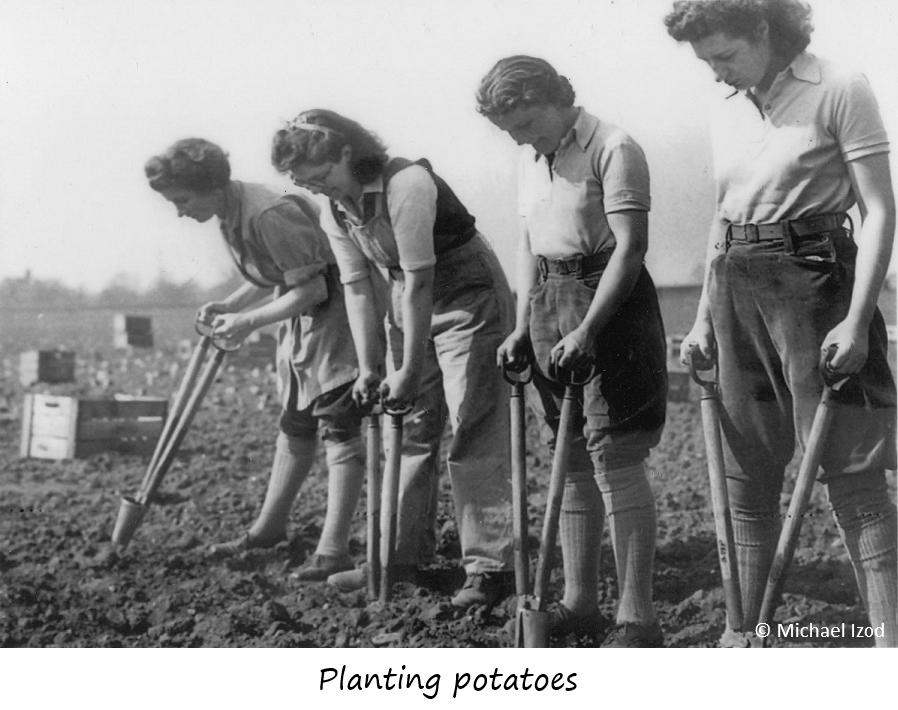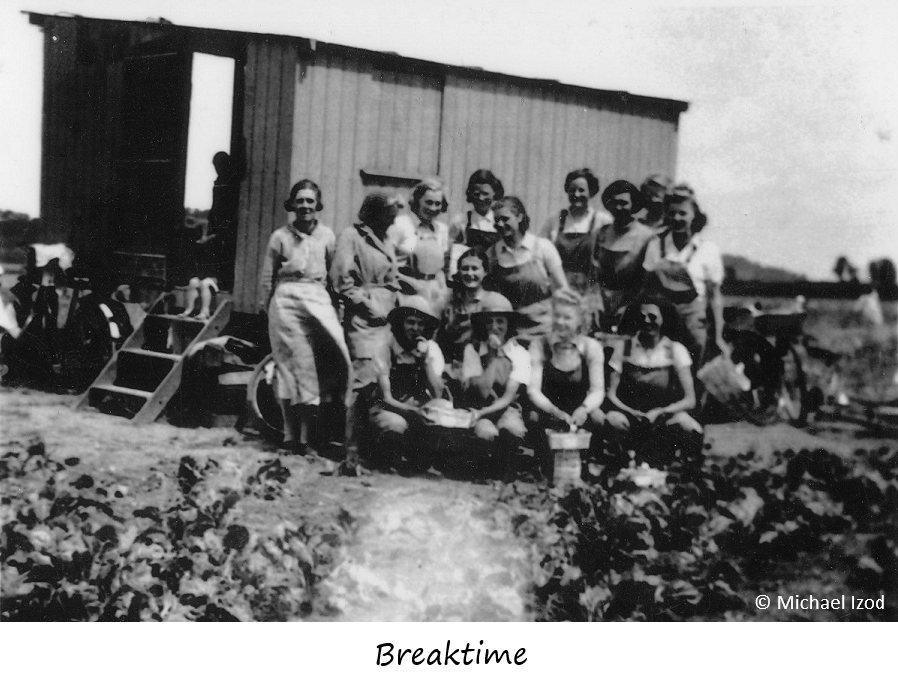For most people, life changed a lot during the World Wars. How did market gardening change? What was it like to live in the Vale of Evesham during the wars? Explore photographs and records from the time by clicking on each box.
World War I (1914-1918)
More medicine was needed during the war, so the government asked Evesham’s market gardeners to grow plants that are used in several important medicines.
By 1917, market gardeners in villages near Evesham – Badsey, Bretforton, Offenham and the Littletons – were growing belladonna (to treat poisonings), henbane and stramonium (for stomach problems). Drying these plants to turn into medicine turned out to be tricky, so a special drying shed was built to make this easier.
The help of local growers made a big difference, as by the end of the war the Evesham area was growing 1/4 of Britain’s henbane and 1/5 of the country’s belladonna.
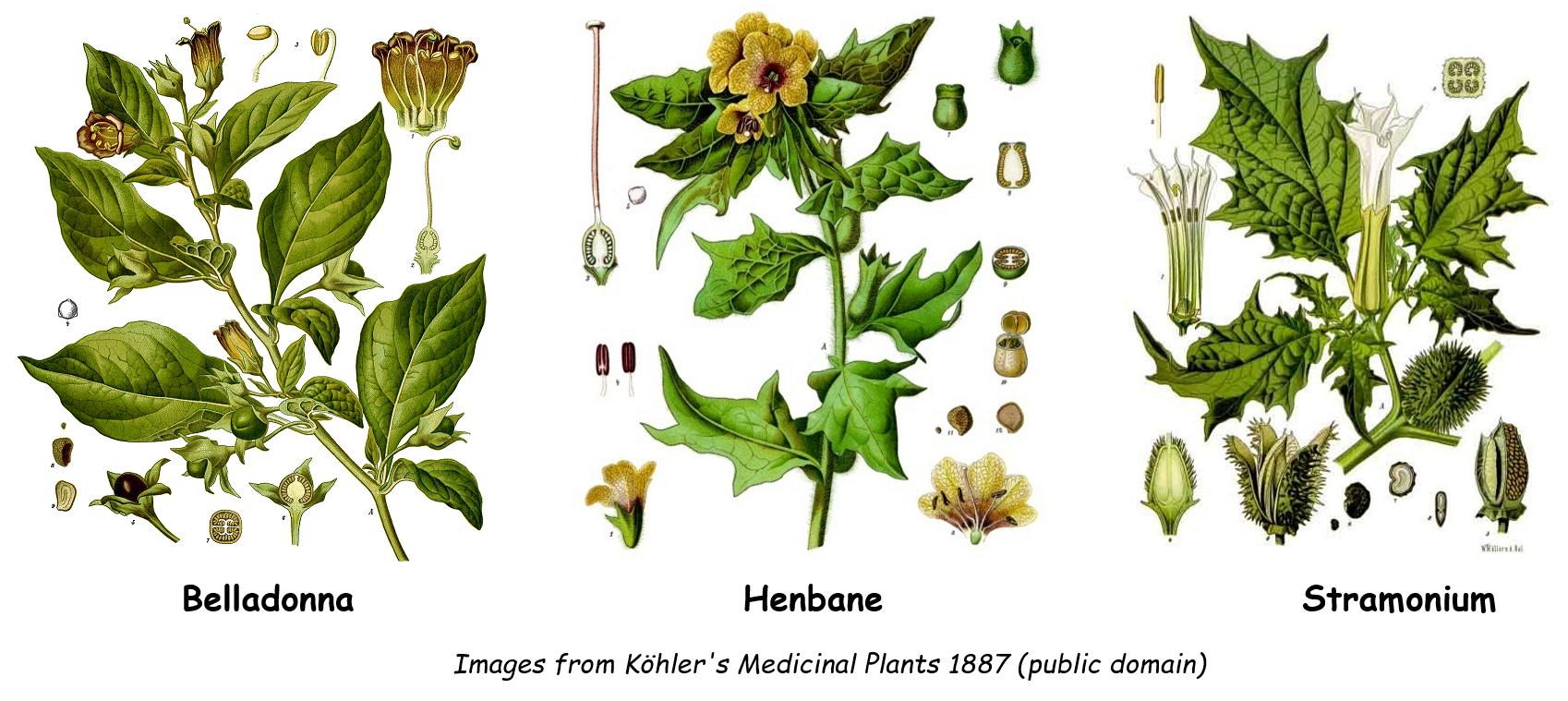
Soldiers who are captured by their enemy are known as ‘prisoners of war’, or POWs for short. Many of Britain’s farm workers were away fighting, which meant that there were not enough people left to do the work. It was decided that some German prisoners of war would help farmers and market gardeners. Starting in 1917, over 400 German POWs were sent to the Evesham area.
Not many records were made at the time and even fewer have survived. However, we do have a couple of local newspaper articles and photos of the German prisoners who stayed at Broad Marston, east of Evesham.
Explore the records to find out more – did local people and prisoners get on? Were there any problems? What do you think it was like to be a prisoner in a different country?
Use the side arrows to scroll through the images.
Many thanks to Chipping Campden History Society for kindly giving us permission to share their research and Jesse Taylor’s photographs. More details and images can be found on their website – German POWs in WWI.
World War II (1939-1945)
Growing food was important work, but World War II still caused many changes to market gardening and life in the Vale of Evesham. Despite challenges, the greater need for food during World War II meant that it was a boom time for many market gardeners.
 |
Crops
Market gardeners were told what foods they could and couldn’t grow. They had to grow more potatoes and onions, as these foods fill you up quickly, and fruit that could be made into jam (as jam keeps longer than fresh fruit). Strawberries were a luxury so not many could be grown, but did everyone stick to these rules? Listen to Henry’s memories to find out.
|
Rationing
To make sure that everyone had enough, lots of items were ‘rationed’. This meant that people could only buy their fair share of food and clothes. Not everything was rationed, so it could be hard to find enough baskets and string to send fruit and vegetables to market.
Mike remembers how people used to help each other out during the war.
Click on the side arrows to see the next image.
Workers
As market gardeners were needed to grow food, they didn’t have to join the army. However, many of their helpers were called up to fight. This made planting and harvests time harder, as there weren’t always enough people around to get the work done.
The Women’s Land Army helped Britain to grow enough food during the war. With so many men away fighting, farms and market gardens needed help to grow and harvest their crops.
Over 200,000 women signed up to help and small groups of land girls were sent to stay in several villages around Pershore and Evesham, including Wickhamford, Harvington, Charlton and Great Comberton.
Use the side arrows to scroll through photos of land girls working around Fladbury.
Most land girls had grown up in a city and didn’t know much about farming, so had lots to learn. It was also the first time that many had been away from home. What did they get up to? Was it enjoyable, or just hard work? And were growers grateful for their help?
Read Beryl’s memories of the Women’s Land Army to find out more:
As World War II continued, more soldiers were captured as prisoners of war (POWs) and sent to Britain. Despite worries about safety, it was decided that Italian and most German POWs could help with growing food.
Nearly 40,000 Italians and 70,000 Germans worked on British farms and market gardens during the war. There were quite a few POW camps around the Vale of Evesham, but not many written records or photos survive.
Delve into written memories from those who were there at the time:
- Wolf Wahle – a German prisoner of war (PDF) (Word document)
- Local children – memories of Italian prisoners of war at Chipping Campden
Were farmers and market gardeners grateful for this help? What did local people think? What was it like to be an Italian or German solider in Britain?
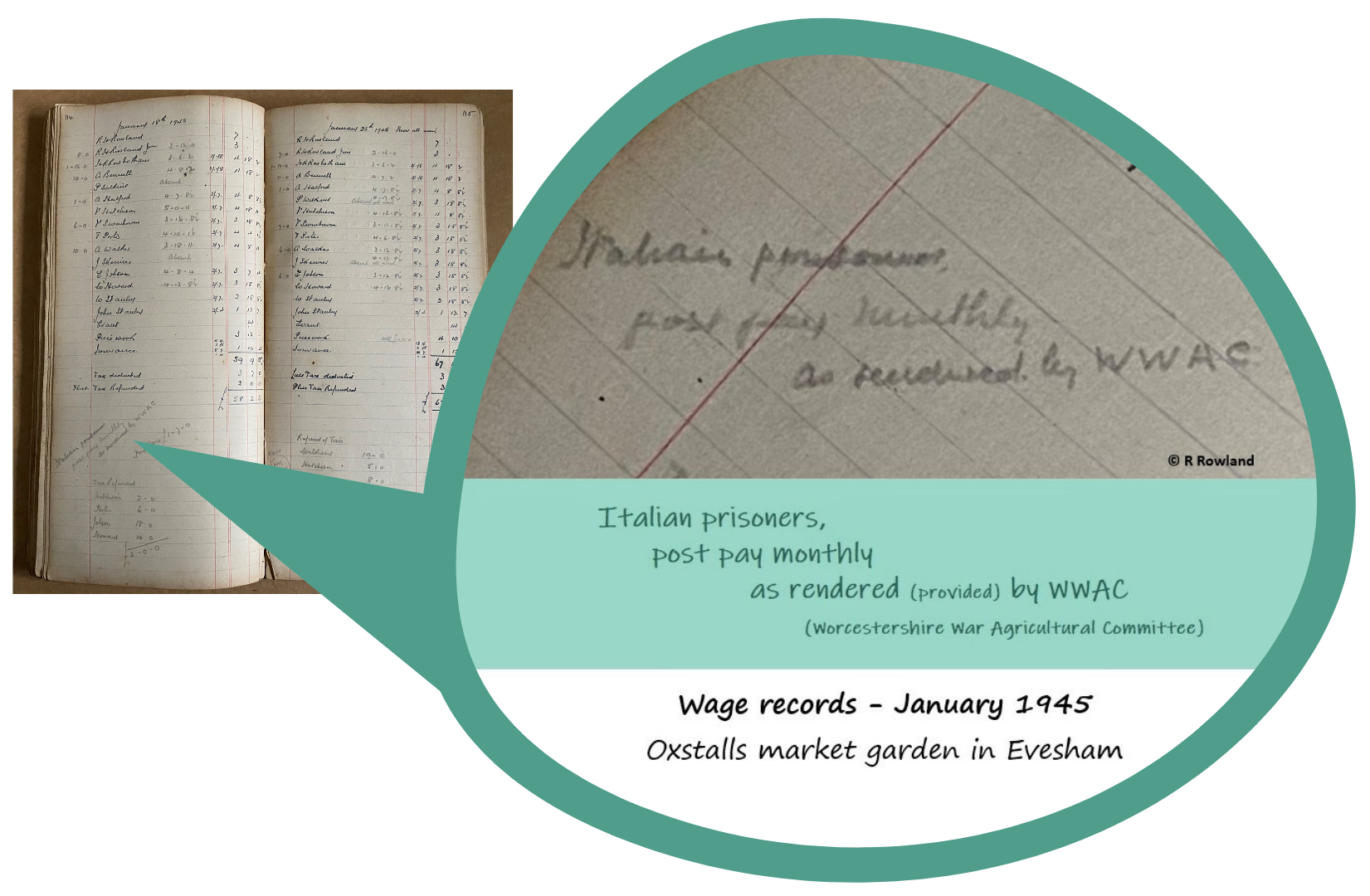
For many people, it was worrying to have enemy soldiers living and working nearby. However, there are also stories of prisoners of war becoming friends with local people or getting married.
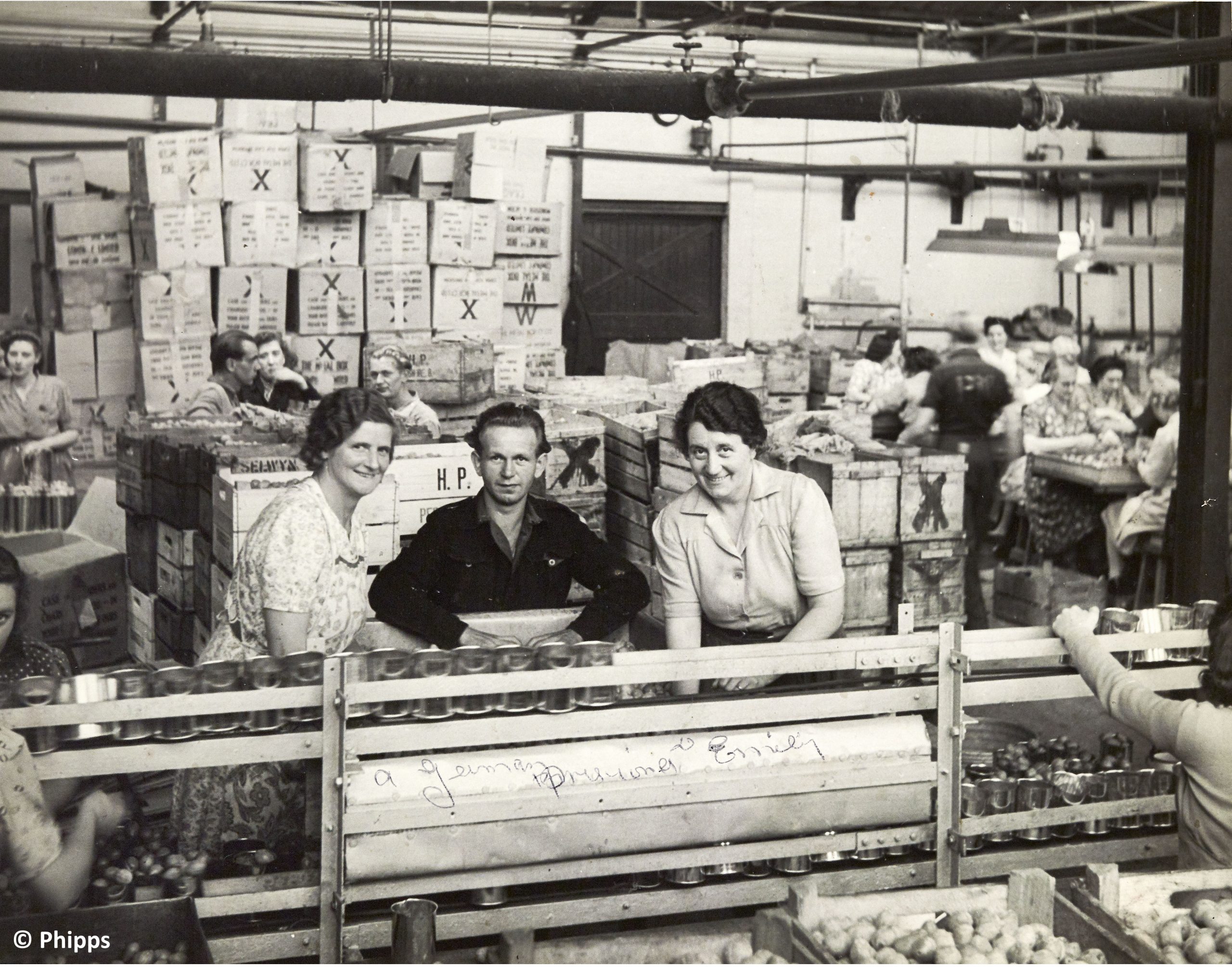
A German prisoner of war working at Phipp’s fruit and vegetable canning factory in Wyre Piddle, near Pershore.
